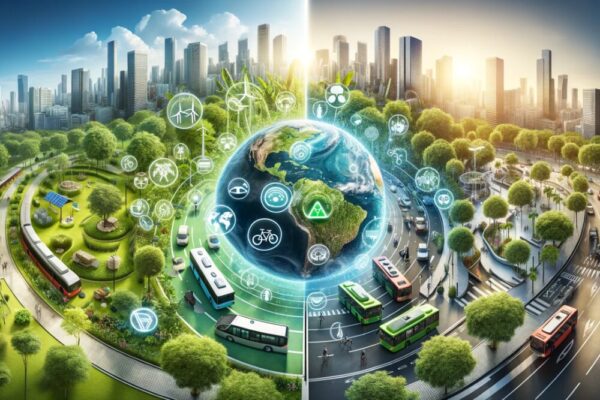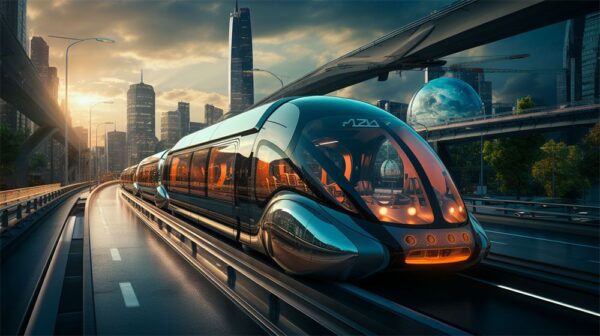The Evolving Landscape of Future Mobility: A Deep Dive into Tomorrow’s Transportation
In recent years, the concept of future mobility has transformed from a futuristic vision to an imminent reality. As the world advances technologically, the demand for innovative, sustainable, and efficient transportation solutions has surged. The future of mobility is no longer confined to self-driving cars or electric scooters; it encompasses a holistic overhaul of how people and goods move globally. From revolutionary future mobility products to cutting-edge electric vehicles (EVs), the shift toward sustainable and connected transportation is redefining the industry.
The Future of E-Mobility: A Revolution on Wheels
One of the most significant shifts in future mobility is the rise of e-mobility. Electric vehicles are at the forefront of this revolution, promising reduced emissions and lower dependency on fossil fuels. Companies like Bosch are spearheading innovation in this space with their Bosch future mobility solutions, including advanced battery technologies and charging infrastructure.
Governments and corporations worldwide are investing heavily in EV development, positioning e-mobility as a core component of the future of mobility. Public transportation is also evolving, with electric buses and trains gaining traction. The vision is clear: to be the future of mobility with eco-friendly, efficient alternatives to traditional modes of transport.
Future Mobility Products: Bridging Technology and Sustainability
The market is flooded with future mobility products that blend technology with sustainability. From autonomous vehicles to drones for package delivery, these innovations are reshaping how we interact with transportation systems. The concept of “Mobility as a Service” (MaaS) is gaining momentum, offering users seamless access to multiple modes of transport through a single digital platform.
Deloitte’s The Future of Mobility report highlights the increasing role of data analytics and AI in optimizing transportation networks. Whether it’s traffic management or predictive maintenance, the integration of technology is pivotal in shaping the future of mobility.

Challenges and Opportunities in Future Mobility:
While the future mobility landscape offers immense potential, it is not without challenges. Infrastructure limitations, high costs of EV adoption, and regulatory hurdles remain key concerns. However, the opportunities are equally compelling. Cities are investing in smart infrastructure, such as wireless charging roads and interconnected traffic systems, to support future of mobility initiatives.
Startups and established players alike are collaborating to develop shared mobility solutions, such as car-sharing and ride-hailing services, which contribute to a more sustainable ecosystem.
Bosch Future Mobility: Pioneering Innovation:
Bosch is at the forefront of future mobility, focusing on innovations that enhance both safety and efficiency. Their efforts in automated driving systems, connectivity, and e-mobility underscore their commitment to be the future of mobility. From smart sensors to AI-driven navigation, Bosch is playing a pivotal role in advancing transportation technologies.
FAQs:
Q1: What is future mobility?
A: Future mobility refers to the next generation of transportation solutions that are sustainable, technologically advanced, and designed to address modern challenges like climate change and urban congestion.
Q2: How does e-mobility fit into the future of mobility?
A: E-mobility, which includes electric vehicles and related infrastructure, is a cornerstone of the future of mobility, aiming to reduce carbon emissions and promote energy efficiency.
Q3: What are some examples of future mobility products?
A: Examples include autonomous vehicles, electric bikes, drones for deliveries, and Mobility as a Service (MaaS) platforms that integrate various transport modes.
Q4: How is Bosch contributing to the future of mobility?
A: Bosch is leading innovations in automated driving, e-mobility, and smart connectivity to enhance safety and sustainability in transportation.
Q5: What challenges are associated with future mobility?
A: Key challenges include high costs, infrastructure readiness, regulatory barriers, and the need for widespread consumer adoption.
Conclusion:
The future of mobility is an exciting domain with transformative potential. From future mobility products to advancements in e-mobility, the transportation landscape is poised for a radical shift. Companies like Bosch and insights from reports such as Deloitte’s The Future of Mobility highlight the collective efforts required to drive this change. Embracing these innovations will not only redefine transportation but also contribute significantly to a more sustainable and connected world.
Be part of this transformation and be the future of mobility—because tomorrow’s transportation begins today.




